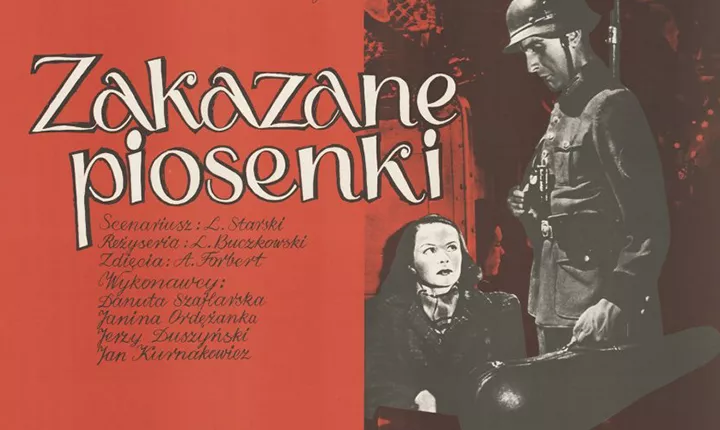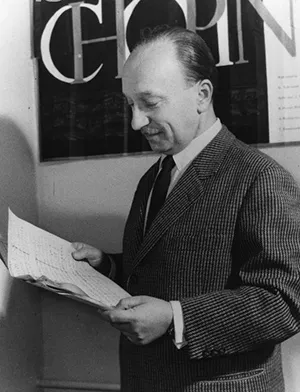Premieres of Long-Lost Music, Iconic Film Tell New Story of Nazi-Occupied Poland

The 1947 film Forbidden Songs (Zakazane piosenki), which features a score written by Roman Palester, will be shown with English subtitles for the first time at the festival.
A two-day festival “Forbidden Songs," March 22-23, explores the fraught artistic and personal decisions confronted by the Polish composer Roman Palester (1907–1989). Highlights include the world premiere of the 1947 film Forbidden Songs for the first time with English subtitles, U.S. premieres of Palester’s chamber music, and a lecture about Palester’s life and works. All events are free and open to the public.
Forbidden Songs was the first feature film released in Poland after World War II. Conceived and written by Ludwik Starski, a Polish-Jewish survivor of the Holocaust, the film remarkably adopted the genre of light musical comedy to portray the diverse experiences of Warsaw's inhabitants during the period of Nazi occupation from 1939 to 1945. The film’s score, created by Palester, draws heavily on authentic popular sources, notably satirical Polish “street songs” banned by the Nazis, but nonetheless performed as expressions of resistance and a means of psychological sustenance during this time of deprivation and terror.
“The film gives us a glimpse into the ways in which music helped Polish Jews and non-Jews alike to reclaim notions of community in the immediate postwar years,” explains Associate Professor of Music Barbara Milewski. “It also compels us to consider the tensions between personal and official acts of remembering—and forgetting—within the contexts of Poland’s historically oppressive regimes and the nation’s contemporary politics.”

Palester's works have largely been forgotten due to censorship by authoritarian regimes.
The American premiere of Palester’s music is a major event for both concert audiences and scholars. Palester’s blend of neoclassical energy with a lyrical sensibility made him among the most distinctive composers of 20th-century Poland. But his music was long banned there and has been almost completely forgotten.
“Palester had to overcome two authoritarian regimes: first, the brutal and terrorizing Nazi occupation and then the repressive communist government that rebuilt Poland from the rubble up,” notes Mackenzie Pierce '11, a Ph.D. candidate in music at Cornell University. “His compositions provide insight into how music creates a sense of continuity over rupture. They also remind us that every step towards war and censorship strikes at the lifeblood of an artistic culture.”
The concert will feature pianists Xak Bjerken and Ryan MacEvoy McCullough, soprano Lucy Fitz Gibbon, and violinists David Colwell and Susan Waterbury. “It’s very attractive music,” observes Waterbury, professor of violin at Ithaca College. “It’s playful yet soulful.”
Pierce will present the Peter Gram Swing lecture exploring Palester’s life and music on Thurs., Mar. 22nd, at 4:30 pm in Lang Concert Hall. The lecture will be followed by a film screening and short introductory talk about the film by Milewski at 8 p.m. in LPAC Cinema. The concert of Palester’s musical works will take place at 8 p.m. on Fri., Mar. 23rd, in Lang Concert Hall. All events are free and open to the public.
For more information, please visit the festival's blog or the Music Department concert and events calendar.



